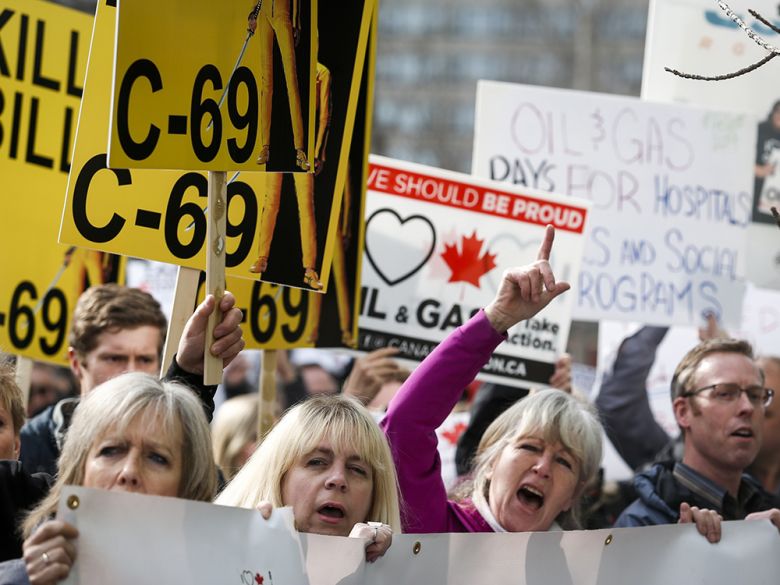Federal Natural Resources Minister Amarjeet Sohi has defended Bill C-69, the proposed replacement for Canada’s environmental impact assessment process, by hailing the greater degree of regulatory certainty it would bring. His various approbations of the bill are directly contradicted by industry groups, regulatory lawyers and many Canadian First Nations. They have cogently argued that the bill does nothing to fix the current uncertainty, creates new uncertainty in how to fulfill the assessment requirements and invites new litigation without precedent.
And so Sohi’s words of reassurance and a toonie might get you a litre of regular unleaded gas in Vancouver, but no pipelines.
Dangerously naive is the federal contention that additional legal requirements, new consultation obligations, discretionary decisions and the elimination of previous precedent will somehow speed up or bring clarity to the process. It seems to be the product of ivory tower drafters who have not faced down the kind of opposition-at-any-cost effort that halted Trans Mountain.
The bill does nothing to fix the current uncertainty, creates new uncertainty … and invites new litigation
There is a great economic risk to Canada’s resource sector if Prime Minister Justin Trudeau barrels ahead with this new mess. Sadly, one gets the sense that no matter how beset the feds are with well-considered challenges to C-69 — the latest of which came so compellingly from new Alberta Premier Jason Kenney — they do not want to hear the ends of any of their critics’ sentences.
More serious still is what Bill C-69 and yet another parliamentary peach, Bill C-48, the B.C. tanker ban, will do to national unity if they become the law of the land.
Today in Alberta and Saskatchewan, feelings of alienation — and yes, separatism — are not only the purview of the usual demographic suspects. Intense dissatisfaction with the federation in these two provinces is much broader and deeper than the usual 15-per-cent cohort of self-identifying alienated citizens at any given time.

First it was the venerable Angus Reid telling us in February that over 50 per cent of both Albertans and Saskatchewanians (yes, that’s a word) strongly or somewhat supported their respective province “joining a Western separatist movement.” There too was the Environics poll of last month that pegged the number of those open-minded to independence (or as that survey’s wording suggested, resigned to independence if things didn’t change) was 53 per cent … in Saskatchewan.
These numbers should shock. They are an order of magnitude stronger than they were at the time of the NEP when the first Trudeau caused earnest Western Canadians to think about going it alone.
Over 50 per cent of both Albertans and Saskatchewanians strongly or somewhat support 'joining a Western separatist movement'
Angus Reid
And if C-69 is dry kindling to the flames of Western alienation, then C-48 is a carbon-taxed lighter fluid.
C-48 seeks to stop the export of Western Canadian oil, notionally to protect the pristine West Coast from oil tankers, ironically while tankers from Alaska sail southward past that coast to Washington and California. The East Coast and the St. Lawrence apparently rate no such protection. Then again, these waterways need to be open to oil tankers bringing foreign oil into Canada … because we can’t build any pipelines to move our own oil across the country.
Earlier this month there was a flicker of light on C-48, and from the Senate no less, when the transportation committee voted the bill down. Let this be a portent of a similar ignominious fate for this ill-considered and dangerous legislation when it’s called to a vote in the full Senate.

If it is not defeated, consider then what Westerners will feel. If further economic dislocation is caused because of objectively unfair and harmful legislation from a distant and out-of-touch federal government, compounded by the continued intractability of a dysfunctional pipeline approval problem and with Westerners still on the paying side of the equalization formula, the talk out West might turn in earnest away from trying to improve on the status quo to “and now for something completely different.”
— Brad Wall is a former premier of Saskatchewan. He currently serves as a member of the Advisory Council for the Canadian Global Affairs Institute.
- Brad Wall: SNC-Lavalin’s VIP treatment is a slap in the face to the West
- Brad Wall: Canada could impact emissions were Ottawa not so obsessed with carbon taxes
- Brad Wall: Liberals’ previous energy missteps echoed in current national emergency



























